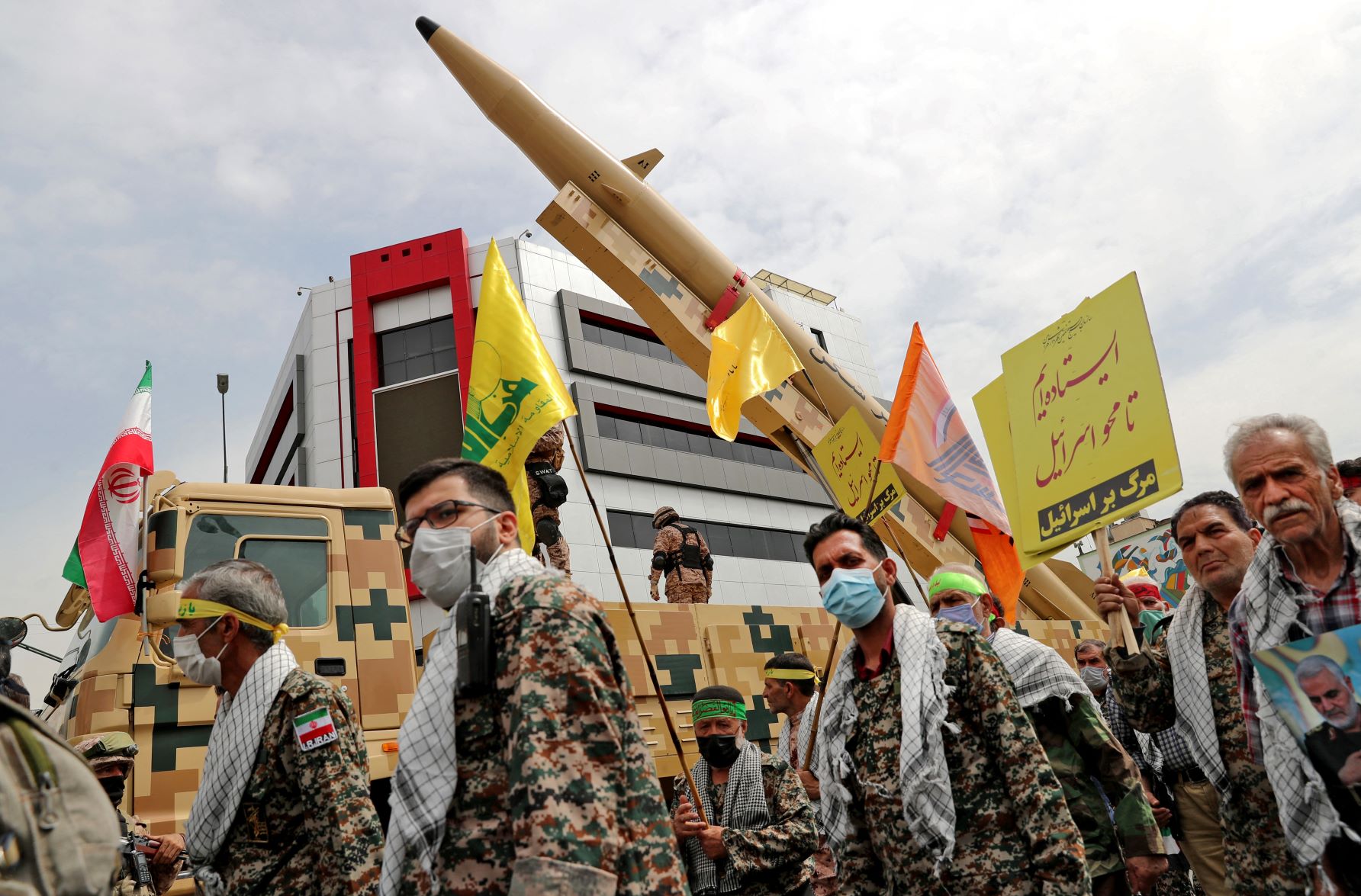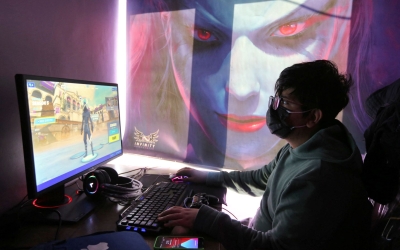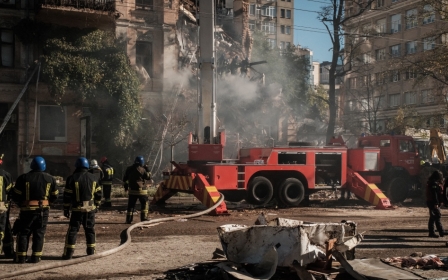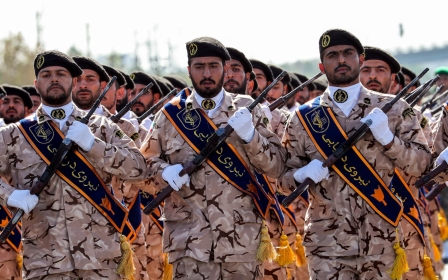Iran protests: Basij death toll highlights paramilitary group's role in crackdown
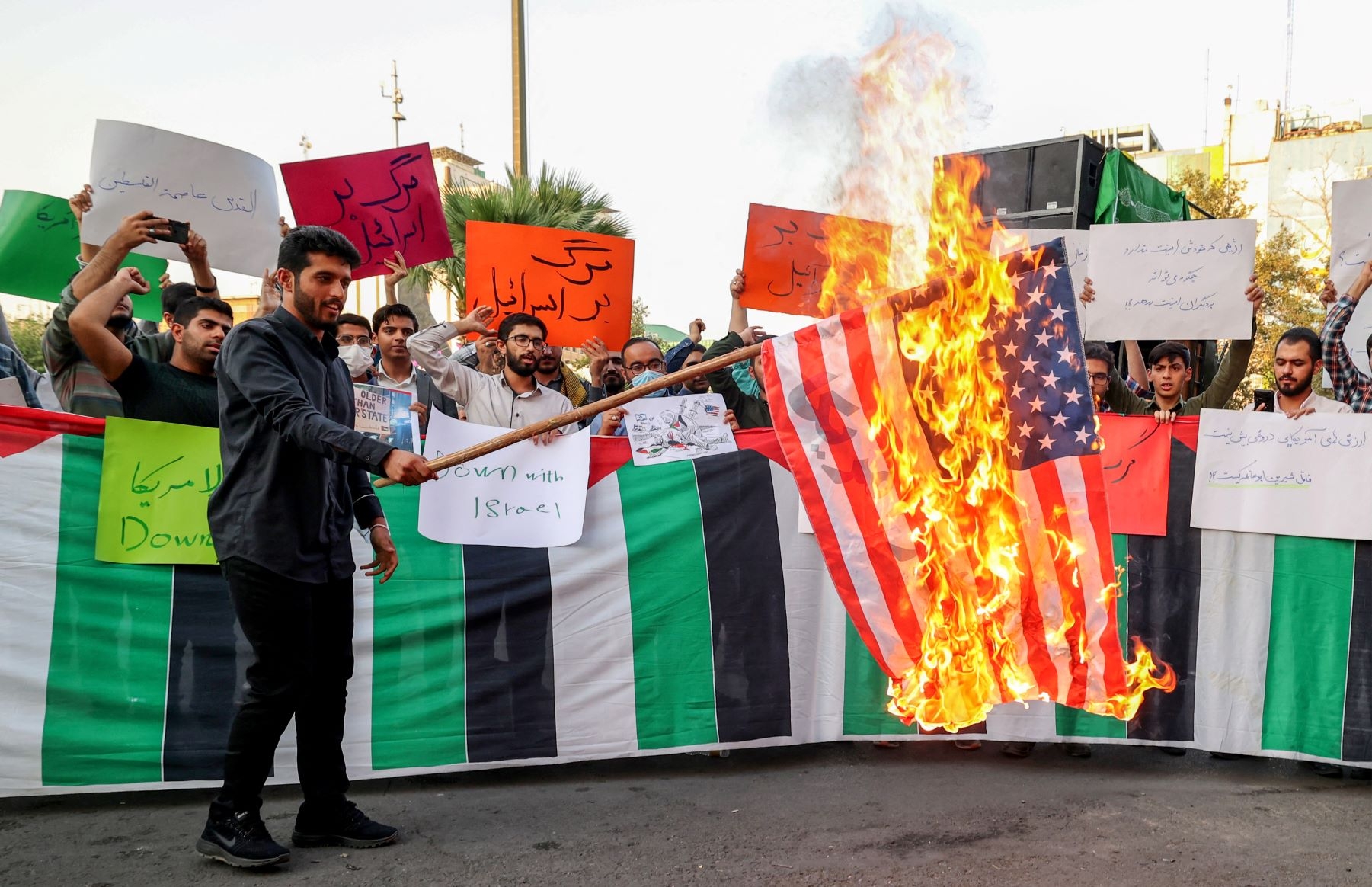
Elnaz* was returning from a protest in central Tehran in late September over the death of Mahsa Amini when four men on motorbikes pulled up and blocked her way.
The men were members of Iran's Basij paramilitary force, who have been central to the suppression of demonstrations against mandatory headscarves and the "morality police" since the 22-year old Kurdish woman's death in mid-September.
Elnaz told Middle East Eye that she was detained and transferred to Al-Javad mosque in Haft-e Tir square.
"They dragged me to the mosque basement where other girls were under arrest," she said. "Then a police officer came and took our phones and, one by one, checked out our text messages. I had already deleted all messages about the protests, and I told the officer that I had been arrested mistakenly."
New MEE newsletter: Jerusalem Dispatch
Sign up to get the latest insights and analysis on Israel-Palestine, alongside Turkey Unpacked and other MEE newsletters
She was finally released when she convinced the police her arrest was based on false claims.
"When I was running out of the mosque's small door at the square, I saw more Basij members were about to enter with new arrestees," she added.
While Elnaz was able to escape, at least 215 protesters, including 27 children, have been killed since the beginning of anti-government protests on 16 September, many at the hands of Basij members.
But figures released by the government and state media also suggest that the unprecedented number of deaths and injuries suffered by Basij underscores the role of the paramilitary group's involvement in suppressing the protests.
On 15 October, IRNA, the country's official news agency, reported that 850 Basij members had so far been injured in the capital alone. The news agency quoted Brigadier General Hassan Hassanzadeh, commander of the Islamic Revolutionary Guard Corps (IRGC) in Tehran, as saying 185 paramilitaries were injured in the capital on one night, without elaborating on the exact date or place of the incident.
Hassanzadeh added that three members of Basij were killed in confrontations with the demonstrators.
MEE has not been able to independently verify these figures.
Record-high death toll
The Basij has a base in all mosques across the country. The IRGC commands the paramilitary force, and most of its members are volunteers.
However, these members are not directly paid by the IRGC - the government provides full economic support to the members and assists them in occupying positions in governmental offices, the public sector and universities.
But the role apparently comes with risks - reports so far suggest that the nationwide death toll of Basij members has been higher than in any other uprising since 1979.
Tasnim news agency, affiliated with the IRGC, wrote that one Basij member and an IRGC major were killed in the small city of Beyrom on 14 October as they attempted to arrest citizens who wrote anti-government slogans on city walls.
Last week, Iran, the state-run daily newspaper, published a list of armed and paramilitary forces killed since the beginning of the latest wave of demonstrations in the country. It reported that 17 Basij members and seven armed officers were killed during the first four weeks of the protests.
Speaking to Middle East Eye on condition of anonymity, an Iranian political scientist said the deployment of Basij to suppress protests has increased in recent years, as the establishment has lost social support.
"Since it was founded in 1979, Basij has always been an important force for the regime's repression machine, but now its presence has increased because this dictatorial system can't fully trust its own police officers," he said.
The analyst stressed the Iran-Iraq war was the only other time when paramilitaries suffered a higher death toll than the official forces.
"Now, the widespread deployment of paramilitaries has two benefits for the regime; first, they add ready-to-combat manpower to their repression machine; second, they can whitewash their crimes by putting the blame on the paramilitaries," he concluded.
Overlap with army
According to the Iran daily, Basij members were killed in demonstrations in all of the major Iranian cities, including Tehran, Mashhad, Shiraz, Tabriz, Orumiyeh and Karaj.
One surprising detail in its report was the death of an officer serving in Artesh, the country's official army. However, a retired Artesh officer confirmed to MEE that Artesh members had also registered with the Basij and participated in the operations to receive governmental support.
"I was a volunteer member of Basij for a few years, even when I was an officer in the official army," he told MEE.
"We had to operate checkpoints, and I didn't like stopping ordinary people's cars and searching them. So later on, I stopped working with Basij. But many army officials are also members of the Basij."
Reports published by people close to the establishment also underlined Basij's role in the attacks on demonstrators.
On his Instagram page, Javad Mogouei, a documentary filmmaker with close ties to the office of Iran's supreme leader, explained the details of his brutal arrest by the paramilitaries.
"Someone hit me from behind. I fell to the ground. They kicked into my head and chest… they were 10 beating me… [then] they pushed me in a police van," wrote Mogouei, whose brother is a commander in Basij forces from the city of Karaj.
*Names have been changed for security reasons
Middle East Eye delivers independent and unrivalled coverage and analysis of the Middle East, North Africa and beyond. To learn more about republishing this content and the associated fees, please fill out this form. More about MEE can be found here.


